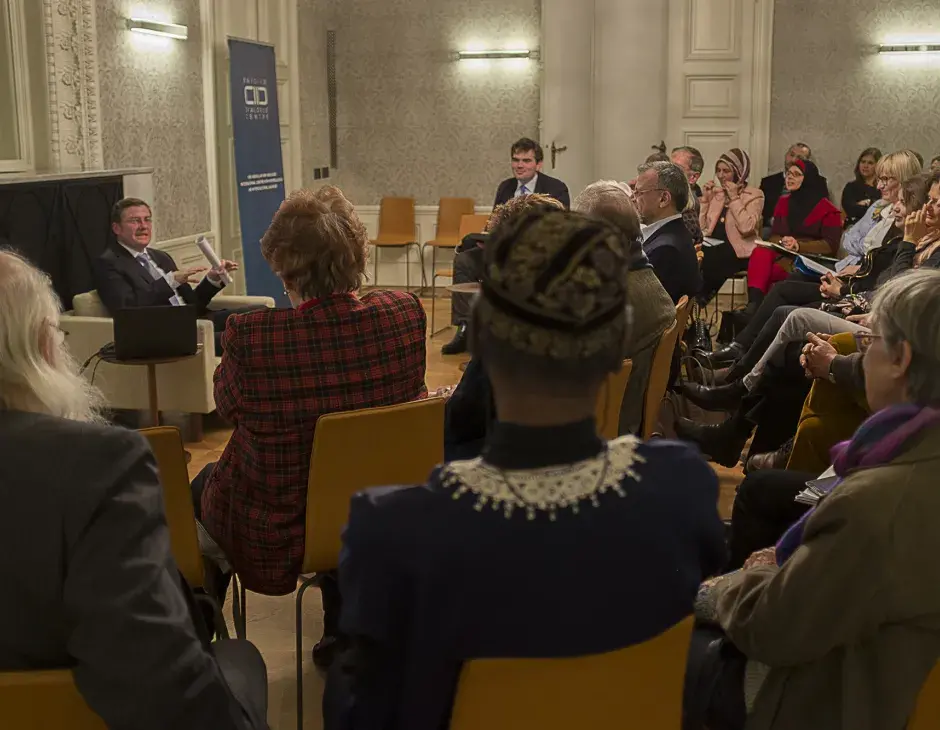‘Religions in Dialogue’: Lecture on Arabic and Greek Papyri by Dr. Lucian Reinfandt
The International Dialogue Centre (KAICIID) welcomed Dr. Lucian Reinfandt of the Austrian National Library’s Papyrus Department to speak as the latest speaker in the Centre’s ‘Religions in Dialogue’ (Religionen im Dialog) monthly lectures series. Dr. Reinfandt introduced Greek and Arabic papyri from the 7th century, shining a new light on the Arab conquests of the time while opening new opportunities for interreligious dialogue today.
As an expert in Middle Eastern studies, papyrologist and a scholar of early Islamic history, Dr. Reinfandt explained that Vienna is home to a rich treasure: with over 160,000 historical artefacts, the Austrian National Library’s Papyrus Department and Museum hosts the world’s largest Arabic papyri collection.
As basis for his lecture, Dr. Reinfandt proposed four theses and anti-theses on how to view religion from a historian perspective:
- Religions are historically justified, thus they have to be seen from a historical perspective (thesis);
- Religions form a separate field of studies beyond the social field - There are religious truths and secular truths that should not be mixed (anti-thesis);
- What is decisive is not the historical truth itself but the respective frame of reference, from which the past is judged (thesis);
- The proven historical events are a decisive corrective for today's interreligious dialogue (anti-thesis).
To conclude the presentation, Dr. Reinfandt drew three conclusions for a fruitful interreligious dialogue:
- Religions, as we know and practice them today, do not necessarily have to correspond to the recorded understanding of the founder’s image;
- Religions can differ from region to region and can change in the course of time;
- Religions practiced today in Austria may be different from the same religion practiced in another country.
Following a lively Q&A session, the interested public engaged Dr. Reinfandt in dialogue at a reception concluding the evening. The catering was provided by ‘Habibi & Hawara’, a social enterprise in Wipplingerstrasse providing refugees with an opportunity to work.

